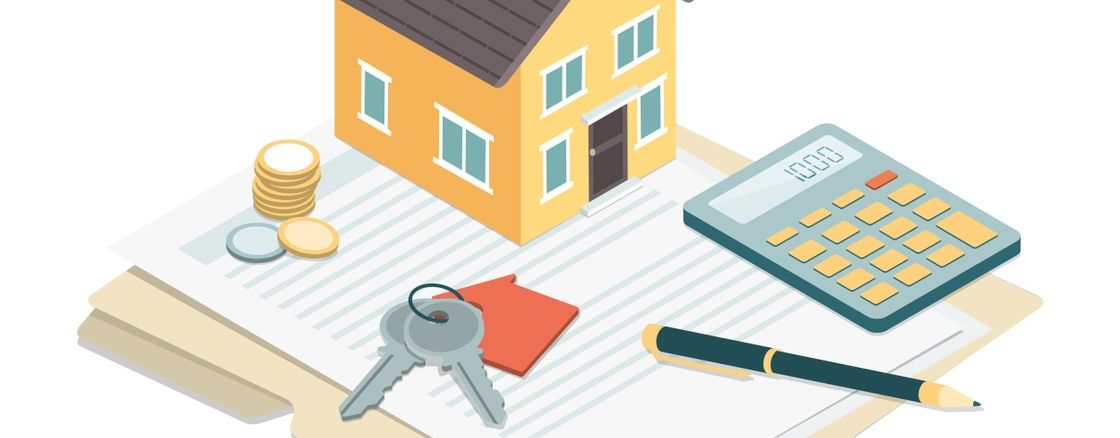Using Lender Credits to Pay Closing Costs
Written by:
Mike Tassone
Mike is a Co-Founder and Chief Operating Officer of Own Up. He has expertise in all areas of residential lending, having led operations for a top 40 lender in the United States.
See full bio

People making the decision whether to rent or buy most frequently cite the down payment as a major obstacle to homeownership. Another frequent obstacle is a low credit score. But what if you are past both of these challenges? You have done the up-front financial preparations by getting your credit report and score (and both are good), you have a stable income, and you know how much you can afford to spend on a house.
You did your research to find a local real estate agent who helped you locate the perfect house, you negotiated a good purchase price, you got a mortgage, and the house was cleared by the home inspector and valued by the appraiser. You know you can afford the down payment and monthly payments (including property taxes, homeowner’s insurance and in some cases private mortgage insurance). It seems like nothing could go wrong.
But did you account for closing costs? If you didn’t, you could be in for an upsetting surprise. The median home price in the second quarter of 2019 was $320,300. A 20 percent down payment would be $64,060. Closing costs, which generally equal 2 percent to 5 percent of the purchase price, would be between $6,406 and $16,015. That’s not a lot compared to the down payment, but it’s an added cost people don’t always take into account when doing their math.
How Closing Costs Can Derail a Home Purchase
Mortgage lenders provide a closing disclosure to buyers breaking down all the various closing costs. Many buyers, but specifically first time buyers, have a case of sticker shock when they see a five digit number—in addition to the down payment. There are more than a dozen different fees, taxes and charges including in the closing cost list including loan origination fees, appraisal fees, title insurance, advance payment for property taxes and homeowners’ insurance, notary fees, credit report fees and attorney’s fees.
Some buyers receive this final document and realize that though they scraped enough together for the down payment, they don’t have enough left to cover all the fees. In the worst-case scenario, this causes the sale to fall through. But it doesn’t have to. There is a way to work with mortgage lenders to help cover closing costs and allow the sale to go through. They’re called lender credits.
Making Cents of Lender Credits
Buying a house is a very expensive endeavor, so it should be no surprise that buyers look for ways to make the process more affordable. How you address affordability depends on the particular part of the process where you are looking to cut costs. Many people haven’t heard of lender credits, but they have heard of another aspect of mortgage loans: discount points, often just called points.
Points are fees that buyers pay the mortgage lender at closing in exchange for a reduced interest rate on their loan. These buyers pay more upfront to save on their monthly mortgage payment for the life of the loan. Points cost 1 percent of the total loan and reduce the mortgage interest rate about 0.25 percentage points, though the exact amount varies by lender. Here is how the math works:
House Cost: $250,000
Point purchased: 2 x $2,500= $5,000
Mortgage rate before points: 4.75%
Mortgage rate after points: 4.25%
Savings on the monthly mortgage payment = $74.27/month x 360 months (30 years) = $26,737.20
Total savings= $26,737,20- $5,000=$21,737,20
Looking at the math, this choice makes a lot of sense for people planning to stay in their home a long time who want to lower their overall payment amount. But what if paying the closing costs is the challenge?
In this case, you need to flip the math on its head and consider the lesser lender credits. Lender credits are like buying points in reverse. The mortgage lender gives you extra money upfront for closing costs, in exchange for a slightly higher mortgage interest rate. The lender effectively bakes in the cost of the credit into the mortgage interest rate. The exact increase in your interest rate depends on the specific lender, the kind of loan, the loan amount and the mortgage market at the time of purchase. You can see how it works using the same example above, in reverse.
House Cost: $250,000
Lender credits: $5,000
Mortgage rate before lender credits: 4.25%
Mortgage rate after lender credits: 4.75%
Added monthly cost: $74.27/month x 360 months (30 years) = $26,737.20
Total added cost over the life of loan: $26,737.20- $5,000 (credit)=$ 21,737,20
This higher rate is not ideal, but if it allows a cash-strapped buyer to become a homeowner, it can be worth the added cost. In extreme cases, lender credits will cover all closing costs (excluding the owner’s title insurance, which is paid by the buyer). This is called a no closing cost loan.
Landing Lender Credits
Lender credits are available for any loan type, including conventional, FHA loans and VA loans. Buyers can negotiate with the loan originator, mortgage broker or bank just as they would approach those people about mortgage interest rates and buying points. Remember to shop around to different lenders. This includes getting both a mortgage interest rate and a complete loan estimate from prospective lenders. Own Up can help you secure multiple offers from a network of vetted lenders; or if you have an existing offer from a lender, you can upload your loan estimate to Own Up and to compare it and make sure you’re getting fair terms.
Having good credit and a shortage of cash on hand for the down payment and closing costs should not dissuade you, if homeownership is your immediate goal. Getting lender credits will increase your interest rate, but it can mean the difference between renting and owning.
As shown with the example above, lender credits will cost you money over the life of a 30-year loan. But remember, the exact extra cost is dependent on numerous factors. If you plan to refinance, you could later reduce your mortgage interest rate and recoup some of the cost of the credit later on. If you plan to sell your house before paying off the entire loan, the up-front money allows you to buy the house and not pay the higher interest over the entire term.
As you can see, mortgages are complicated and very individual. Own Up understands this. That is why we work with home buyers and sellers throughout the homeownership journey to empower them to find the home and mortgage that works for them. If you are looking to buy a home and considering using lender credits, give us a call. We are happy to answer any of your questions.


